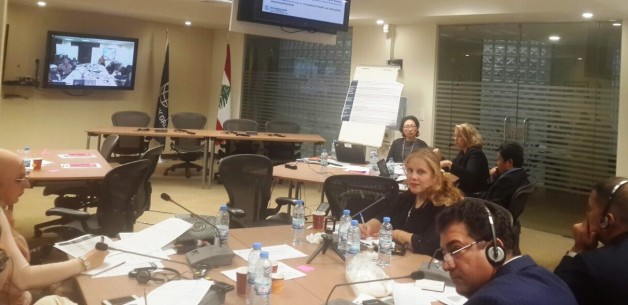This post is also available in: Arabic
Iraqi Civil Society Organizations (CSOs) are actively trying to hold their central and provincial institutions accountable. Like their local counterparts who continue to plan public protests against government corruption, some local CSOs are focusing more of their civic efforts on the development work of the World Bank (WBG or Bank) in Iraq.
Five local CSOs from different regions of Iraq have recently partnered together to form Tahalif al-Raay or the Opinion Coalition. These include the Sons of the Displaced Organization, al-Noor Universal Foundation, Organization for Child and Women Affairs, al-Inbithaq for Development and Economic Development, and Freedom Press Advocacy Association in Iraq.
While their areas of civic interests and expertise might differ, ranging from women and child rights to displaced population to development, these CSOs have the common goal of working with the Bank to hold the Iraqi government accountable on Bank-funded projects in the country.
Recently in February 2016, the Bank invited the Coalition to attend a consultation session in Beirut, Lebanon on the Bank’s safeguards. The session, attended by representatives from the Iraqi government, Kurdish Regional Government as well as local CSOs, was designed to seek inputs from the participants to inform the development of the Bank’s review of its safeguard policies.
Following the session, CSOs representatives submitted their asks to Bank officials in Baghdad, detailing a strategy to alleviate poverty in the country. Among the asks was that the Bank must make it binding for the Iraqi government to set the stage for cultural, social, and economic accommodation of the poor, create employment opportunities, build local capacity, and social safety nets. CSOs also offered advice on developing a community monitoring of government performance in its implementations of projects. This is especially important in a country where Bank’s staff cannot travel freely and that is ranked 161 out of 168 in the last Corruption Perception Index of 2015. According to the World Bank, “endemic corruption [in Iraq] is one of the main factors contributing to state weakness…corruption is widespread, transparency and accountability are weak, and the rule of law is poorly applied. Citizen engagement in oversight is weak. These weaknesses affect the delivery of public services; access is uneven for individuals and businesses as in the playing field for private sector provision” (World Bank-Iraq Country Partnership Strategy FY 13-16).
Now that the Bank is becoming more directly involved in devising Iraq’s federal budget, and is providing more loans and grants to fund projects and deal with budget deficit, CSOs feedback becomes particularly consequential.

